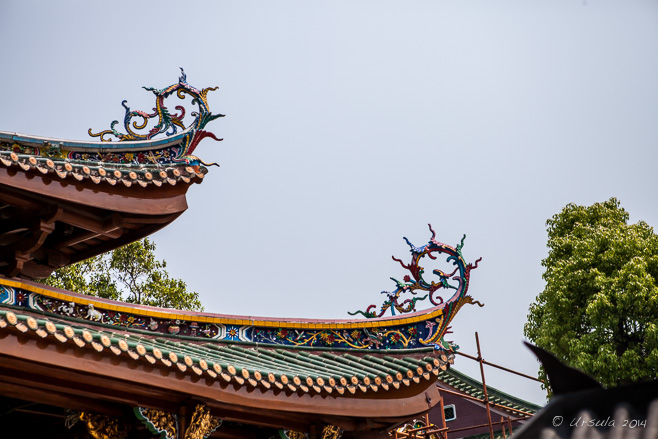
Roof of the Heavenly King Hall
Nan Putuo Temple, Xiamen, Fujian Province, China
新年快樂 ~ Gōng xǐ fā cái ~ Happy New Year.
It is Chinese New Year today – a perfect time to visit a Chinese Temple.
Last spring I got to explore Xiamen in Fujian Province, Southeast China, while my husband was busy with meetings. I spent a few delightful days wandering around the coastal city – mostly on foot – with a crumpled map in hand.
One of the highlights on the tourist map is the sprawling Nan Putuo Buddhist Temple Complex. Built at the foot of the Wulao Peaks, it is named for Mount Putuo near Shanghai, one of the four sacred mountains in Chinese Buddhism, and a pilgrimage site for over a thousand years.
During the Tang Dynasty (618 – 907), the Buddhist monks who lived in the hills here had the area established as sacred Buddhist land and built the first temple dedicated to the Bodhisattva Guanyin. Today, the extensively renovated complex spreads over 25.8 hectares, and houses (among other buildings) the Buddhist Institute of South Fujian.
It is easy to enjoy a few hours – or a whole day – of quiet, wandering through the buildings and shrines, or exploring the surrounding woods.
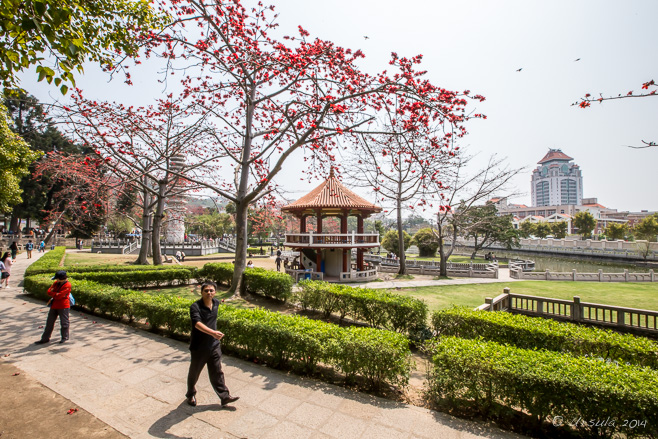
Gardens
The temple sits amid green, sculpted gardens and and ponds.
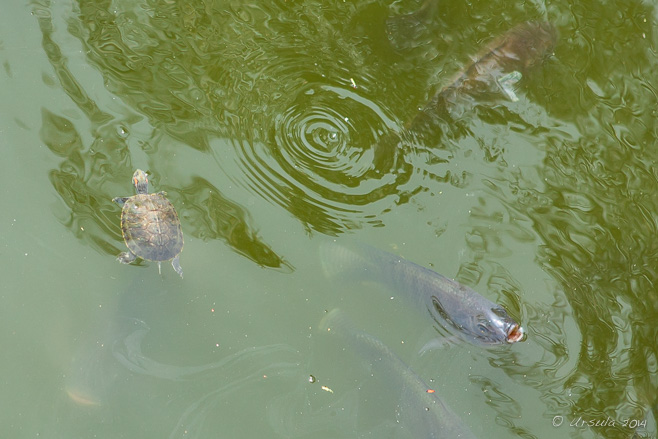
“Free Life Pond”
At the front of the complex, there is a pool for freeing and feeding pond animals. Turtles and carp are popular choices.

Monks in the Courtyard
The temple is a popular pilgrimage and study site, with about 120 monks residing permanently.

Candles

Lighting Incense

Smoke

Heavenly King Hall
People kneel and pay their respects before entering the hall.

Reflections of Nan Putuo Temple
A golden guardian protects the temple entrance. In the reflection, you can see temple buildings, one of the layered white Longevity Towers, and Wulaofeng: the Five Old Men Mountain.

Scaffolding
New buildings are being added; the new work is as ornately carved and decorated as that on the older buildings.

Buddhas in a Cage
Even though the golden Buddha and Bodhisattva images are out of reach…

Lotus
… the faithful still bring offerings of flowers and drinks.

Ornate Grill
Delicate work adorns the stone balusters.

Temple Grounds
Stairs go off in all directions …

Temple Grounds
… so that you can feel alone with the rocks and trees, …

Man on a Rock
… and you can find quiet places to sit.

Stupas in the Garden

Icons in a Cave
One of the small caves on the hillside is filled with hundreds of small Buddhist statues.

Teahouse Entrance
By the time you have climbed up to the teahouse, you have earned a break!

Prayers
As the rough tracks and stairways lead off into the woods, the way is brightened with random prayer flags and bougainvillea.

Delicate Flowers
Small wildflowers grow in the leaf litter.

Shoes on the Stairs
When I see the footwear the local women sport to clamber up and down all the stairs, I am ashamed to feel tired and sore.

View
As you get higher up, there are great views over Xiamen.

Old Monk on the Stairs

Old Monk

Shrine
Around every corner, there are shrines…

Stupa
… and memorials …

Oil Lamp
… and lamps to be lit.

Buddhist Complex
Back at city-level, there are more buildings next to the monks’ quarters.

Master Hongyi (1880-1942)
Before leaving the complex, I stop at another of the memorials – this one for Master Hongyi (Li Shutong), Chinese Buddhist monk, artist and art teacher.

I always find Buddhist temples calming, and when they integrate nature, as this one does, it makes a wonderful break from the hustle of the city.
I wish you quiet breaks in your busy lives, and everything good in the “Year of the Goat”.
Happy New Year!
Pictures: 04April2014


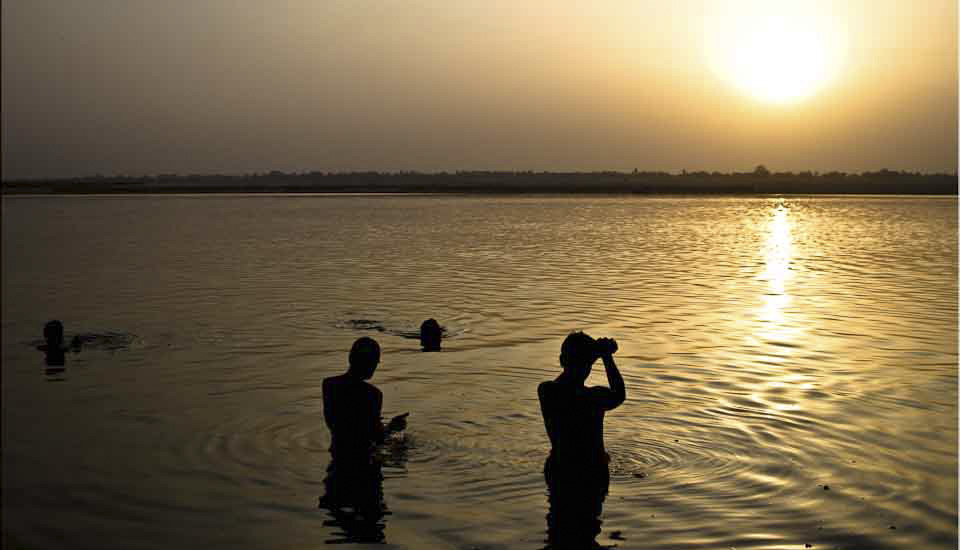






























.png)
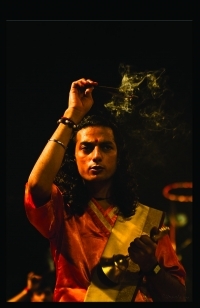
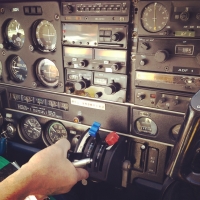
really nice series for Chinese New Year Ursula. Year of the sheep or goat. Greetings Dietmut
Thanks, Dietmut! Happy New Year to you and yours. 😀
[…] contributes to the “liveability” of the city: it has preserved the past in its temples (see: Nan Putuo Temple), forts, and other historical buildings (see: Gulangyu Island); it is surrounded by water and […]